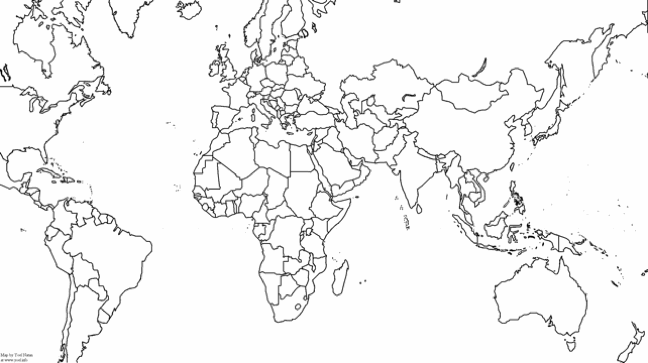-
At home with foreignness
We all come from somewhere. It’s an unavoidable fact of life. It’s similarly unavoidable that we have some sort of emotional connection to that part of the planet we call home. For some, it’s a deep sentimental attachment. For others, it’s a set of memories that they’d prefer to keep in the past. Regardless, there is no denying the power of the concept of “home” in the human imagination. But if we abolish foreignness, do we lose our sense of home? It does not necessarily follow that we do. Patriotism or love of one’s area of origin is a natural human emotion, one that is not to be denied or…
-
When Foreignness is Accentuated
One of the challenging aspects of abolishing foreignness is the sheer scope of the concept of “foreignness.” Foreignness can be all-pervading. It can manifest itself in our thoughts and our laws, in our attitudes and our interactions, in our beliefs and our behaviours. Articles on Abolish Foreignness explore a range of approaches to abolishing foreignness, and the range of these discussions suggests the complexity of the topic at hand. I’d like to discuss here another social mechanism that can contribute, depending on how we employ it, either to the reinforcement of or the abolition of foreignness: language. The diversity of languages on our planet is a valuable part of our…
-
Hometown Foreigners
We traditionally define a “foreigner” as someone who comes from a country other than our own. But that definition is too easy. It does not fully encompass the range of people who find themselves “foreigners” in their own hometowns (that is facing exclusion and discrimination): sometimes because of the occupation they hold. The Japanese film “Okuribito,” known among English-speaking audiences as “Departures,” explores the subtle but serious stigma that society can attach to certain lines of work. The movie, which won the 2009 Academy Award for Best Foreign Language Film, focuses on the life of Daigo, the protagonist, who loses his job as a cellist in Tokyo and moves back…
-
En la nariz: perfumista chispas furor contra el racismo
El mes pasado, hablé de un problema de alienación que está emergiendo de Francia. Este mes, por casualidad, volví a recurrir otra controversia de Francia que se ha apoderado de la atención del mundo-que revela cómo el lenguaje puede crear y perpetuar las nociones de alteridad y alienación.. Jean-Paul Guerlain, que trabajó para la famosa gama alta línea de cosméticos que comparte su apellido como su nombre, ha caído bajo la atención de los medios por los comentarios racistas que hizo recientemente en una entrevista en la televisión francesa. Por decencia, no voy a reproducir sus comentarios en este blog, pero las fuentes principales medios de comunicación mundiales como The…
-
On the nose: perfumer sparks racism furore
Last month, I discussed a problem of foreignness emerging from France. This month, coincidentally, I again turn to a controversy from France that has gripped the world’s attention—one that reveals how language can create and perpetuate notions of Otherness and foreignness. Jean-Paul Guerlain, who once worked for the famous high-end cosmetics line that shares his last name as its name, has fallen under the media spotlight for racist remarks he recently made in an interview on French television. Out of decency, I will not reproduce his remarks on this blog, but major news media sources across the world such as The Guardian are reporting them. There is no question that…
-
A lesson from Europe
The question of the place of the Roma in European society has returned to the media spotlight. The New York Times reports that a meeting of European leaders this week “degenerated into open discord” over France’s plans to deport Roma. Since Romania and Bulgaria entered the European Union in 2007, Roma have migrated in increasing numbers to western Europe in search of work and education. This has raised questions in the EU, according to the Times, “over just how open its borders ‘open borders’ are.” The struggle of the European Union to deal justly with the Roma question serves as a reminder that foreignness is not just a legal or…



















